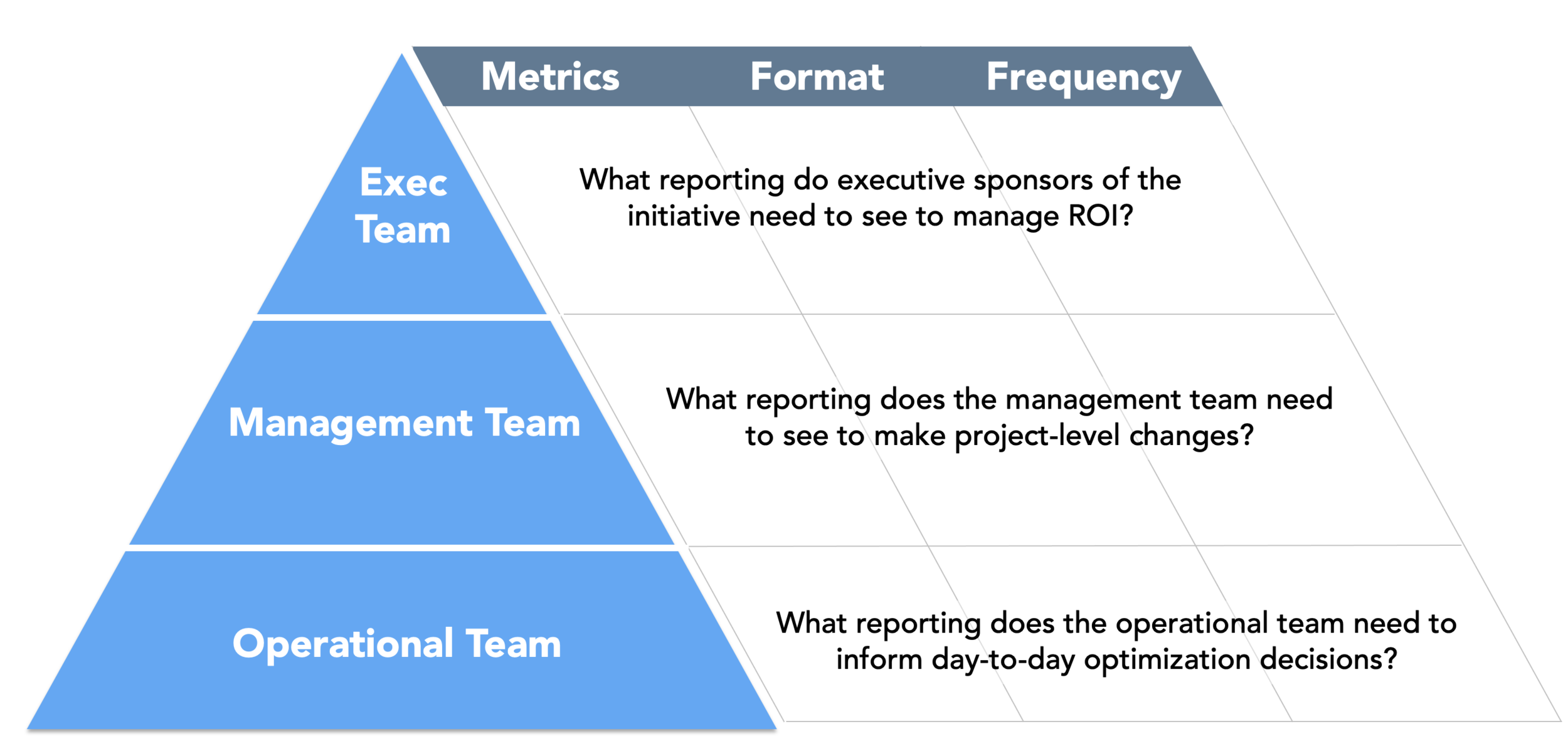Description
The purpose of the Measurement & Reporting Pyramid is to determine the nature of the reporting that is required for different stakeholders relating to an initiative. Often, marketing reporting teams end up sharing the same ‘one size fits all’ reports with everyone that are not relevant or actionable. These reports are often ignored, as they do not provide a basis for decision-making. The Measurement & Reporting Pyramid helps you determine what different teams or levels need to know early in the process so the proper tracking, dashboards, and communication pieces can be put in place. Completing the Pyramid also allows reporting teams to focus their valuable time and energy on the metrics that matter most.
Questions
The Measurement & Reporting Pyramid helps to answer marketing questions like:
What metrics do we need to track and report on for this initiative?
What are the reporting needs of different teams and stakeholders?
In what format and frequency do reports need to be shared?
Steps
Review the goals, scope, and KPIs for the initiative that you are planning. If completing the framework as a team, ensure that everyone has a shared understanding of the initiative.
Identify the different people that need to be informed of the performance of the initiative. Large or complex initiatives will have many stakeholders, small and simple initiatives will have fewer.
For each stakeholder or team, identify the smallest number of metrics that they need to know to make decisions regarding the initiative. Include the stakeholders in the process for input and alignment.
For each stakeholder or team, determine the ideal format and frequency of reporting. For example, the business sponsor may need to present the resulting sales numbers for a weekly management meeting.
Once drafted, review the completed Pyramid with the marketing reporting team. Validate that the people, processes, and tools are available to deliver on the reporting plan. Revisit if plan is not feasible.
Considerations
Remember why the framework is triangular, and share a roll-up of business metrics with senior teams
Do not use this framework for identifying KPIs, use it for identifying how KPIs will be captured and shared
Ensure you are reporting on metrics that guide decisions. Avoid interesting, but unactionable reports
References

